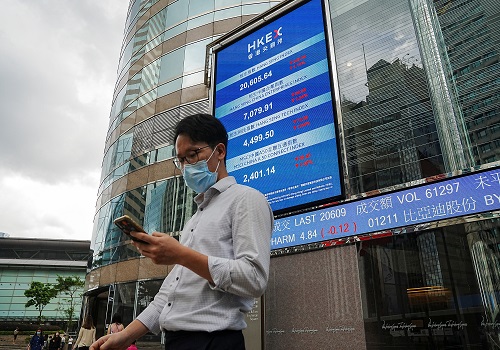Indian farmers hold soybeans as government measures cut prices

Follow us Now on Telegram ! Get daily 10 - 12 important updates on Business, Finance and Investment. Join our Telegram Channel
SATARA, India - Indian farmer Suresh Dhane harvested soybeans from an acre of land nearly a month ago, but like millions of others has been holding onto his crop instead of selling it to oilseed processors, hoping prices will rise.
Slow farmer selling has reduced oilseed crushing in India and could force the country to increase imports of edible oils such as soyoil, palm oil and sunflower oil even as local soybean output is expected to rise by more than a tenth from a year ago.
"Last year I sold soybeans immediately after harvesting at 4,000 rupees ($53.70) per 100 kg and within a few months prices spiked above 9,000 rupees," Dhane said as he was drying soybeans outside his home.
"I am not going to repeat the mistake. I won't sell below 7,000. I can wait for a few months."
At the beginning of the 2020/21 marketing year in October 2020, soybean futures were trading at around 3,800 rupees, but prices jumped to a record 10,680 rupees in August 2021 on lower output and strong demand from the poultry industry.
The price rally prompted farmers to expand soybean planted area as sowing of summer-sown crops started in June.
But before farmers could harvest their new crops, New Delhi took a series of measures to lower soymeal and edible oil prices, including allowing the first ever imports of genetically modified soymeal and slashing edible oil import taxes.
Those steps sparked a collapse in local soybean futures to around 5,200 rupees by late October, before the market slowly recovered to around 6,600 rupees this week, or more than a third below early August levels.
LOWER CRUSH
Most big growers have opted to hoard their harvest rather than sell, in anticipation that prices will rise during the lean supply season, said B.V. Mehta, executive director of the Solvent Extractors' Association of India.
That resulted in lower sales to soy processors during October, when soy crushing traditionally picks up. October's crush total was 37% below last year's, according to the Soybean Processors Association of India (SOPA), and is expected to stay below normal in November, said Manoj Agrawal, managing director at exporter Maharashtra Oil Extractions.
The lower soy crush levels are in turn leading to lower soybean meal supplies just as feed demand from the poultry sector has recovered, Agrawal said.
The All India Poultry Breeders Association last week requested the government to allow imports of 550,000 tonnes of soymeal.
It has also disrupted normal supply patters for oil mills and refiners, raising the prospect of higher imports from the top edible oil consumer.
"Everybody thought soybean crushing will pick up from mid-October and enough local soyoil would be available in the market. But that is not happening. We need to import more," said a dealer with a global trading firm.
India's edible oil imports in November could rise to 1.3 million tonnes compared to 1.1 million tonnes a year ago, the dealer said.












 320-x-100_uti_gold.jpg" alt="Advertisement">
320-x-100_uti_gold.jpg" alt="Advertisement">












